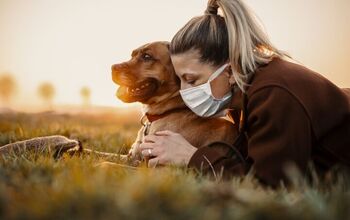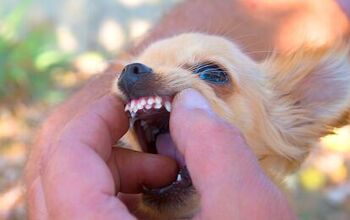Dog Attacks: Do They Stem From Pooches or People?

According to the U.S.’s Centers for Disease Control (CDC), it is estimated that approximately 4.5 million dog bites occur annually in the country. Of those bites, only about 350,000 are significant enough to be reported into the CDC’s own database.
While Canadian statistics are less readily available, the Canada Safety Council estimates that just under half a million Canadians are bitten by dogs every year, but few result in serious injury. The Angus Reid Institute recently conducted a survey on whether dog attacks are the direct result of dangerous breeds or bad pet parents and the results are interesting.
Fifty-eight percent of Canadians believe that dog attacks are isolated incidents (the person’s fault), while 42 percent believe that particular breeds are inherently more aggressive and dangerous, thus putting the blame on pooches. But the answers seem to vary significantly when you examine participant ages against their beliefs.
When surveying Canadians aged 18-34, for example, 33 percent believe that dog attacks are due to bad dogs, while a whopping 67 percent believe it has everything to do with how the owner raises them. As survey takers get older, their answers tend to change. In Canadian survey participants aged 35-54, 40 percent believe dogs are to blame while only 60 percent believe people are at fault. Those 55 and over are split 50/50 on the issue.
Breaking the survey participants into genders reveals that 67 percent of men say certain breeds are more dangerous than others compared to 37 percent of women who say the same.
One’s answers can also hinge on whether or not they currently have a dog, have owned a dog (but not at the moment), or have never owned a dog. Those who have never owned dogs are split down the middle on the issue, with 51 percent saying particular breeds such as Rottweilers and Pitbulls are dangerous and 49 percent saying dog attacks are caused by bad owners and not bad dogs. Of the surveyed participants who currently have dogs, 66 percent believe dog attacks have everything to do with how the dog is raised and not the dog’s breed.
Related: All About the American PitBull Terrier
When asked whether or not Canadians would support policies banning so-called “dangerous breeds”, 52 percent of participants who are over 55 years old or older agreed while only 27 percent of those between the ages of 18-34 supported the idea. Clearly, the older the crowd, the more support there is for banning “dangerous breeds” in the community, while the younger crowd believes its all in how you raise the dog.
The majority of Canadians, however, do support legislation that controls “dangerous” dog breeds. Two-thirds of participants (67 percent) support requiring muzzles for breeds such as pitbulls when they are off their owners’ properties, and 58 percent support more expensive licensing for “dangerous” breeds. The latter would make getting dogs such as American Pitbull Terriers less desirably because they would be more expensive to own (if they are not outright banned in any particular Provence).
Related: The Truth About Pit Bulls
Had I been part of this survey, I would have been among the percentage of people who disagree with this entirely. Even a little chihuahua can be a tiny, incessant nipping machine if you train it to be; it’s all in how you raise the dog and not its breed. While I do believe there are dogs out there who are out of control and sometimes make bad decisions that end in a human getting hurt, I don’t believe that dogs are born inherently bad. Maybe it’s because I’ve dealt with more than my fair share of furry, lovable pooches or maybe its because I often have a fearless approach to animals.
All I know is when I come face-to-face with an enormous American Bulldog or Neapolitan Mastiff walking off-leash at the park, my first instinct isn’t to back away in fear. Rather, I bend down and let them sniff my hand in welcome and after a few seconds of cautious sniffing, I’ve always been rewarded with a wagging tail and more than a few happy licks.
To read more about this survey, check out AngusReid.org.

More by Diana Faria























